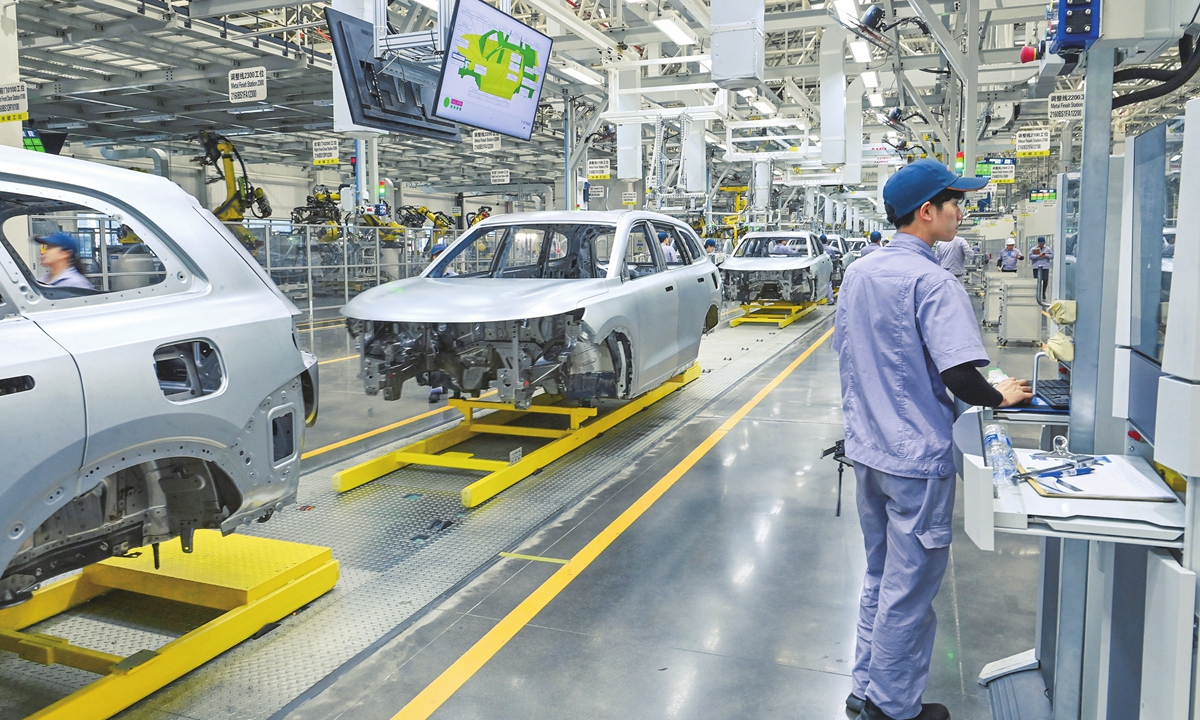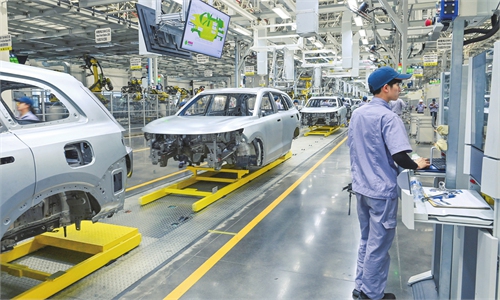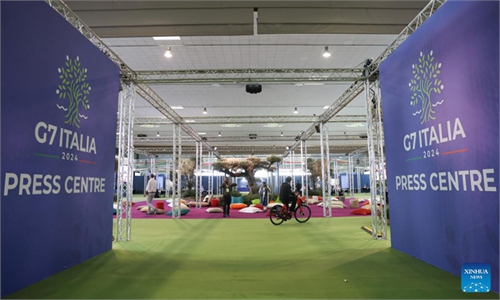Experts urge US to stop economic coercion as Yellen again claims China ‘overcapacity’

The manufacturing line of a NEV factory in Southwest China's Chongqing Municipality Photo: VCG
US Treasury Secretary Janet Yellen on Thursday said she would press China to address the country's macroeconomic model that has led to "overcapacity," claiming that it poses a "threat" to the viability of firms and workers globally, making her the latest American politician calling for a hardline stance toward China as the 2024 US presidential election approaches.
Chinese observers criticized Yellen for engaging in a political show to shift the blame for the US' domestic problems to China and win votes for the Democratic Party. The real purpose behind the US' hyping of China's new energy "overcapacity" is to contain China's advantage in the new energy industry, observers said, calling on the US to stop its hegemonic and economic coercion and instead respect market economy principles and international trade rules to ease its anxiety.
"I will keep pressing China to address its macroeconomic model, which is channeling too much savings and too many subsidies into manufacturing, contributing to industrial overcapacity. This poses a threat to the viability of firms and workers around the world," Yellen said during a press conference at the G20 Finance Ministers and Central Bank Governors Meetings held in Brazil on Thursday, according to a press release on US government website.
As US politicians compete to be more hardline on China issues for the upcoming presidential elections, Yellen's remark is a kind of political show to shift the blame for the US' domestic problems to China, Zhou Mi, a senior research fellow from the Chinese Academy of International Trade and Economic Cooperation, told the Global Times on Friday.
However, this is unwise because the US' escalating decoupling from and crackdown on China is causing instability to China-US economic and trade relations, severely disrupting the international industrial and supply chain structure, and forcing US consumers to pay higher prices, Zhou said.
The self-contradictions and inconsistencies between words and deeds in the US' policy toward China will do no good to restoring political trust between the two countries, he said, noting that there is still a long way to go to stabilize and improve the bilateral relationship.
US politicians have been sensationalizing the rhetoric of so-called overcapacity in China's new energy sector for a period of time. At the Economic Club of New York held in June, Yellen claimed that China's "over-concentrated supply chains" poses additional security and economic concerns to the US.
Following months of misleading overcapacity claims, the US in May announced a sharp increase in its Section 301 tariffs on Chinese electric vehicles (EVs) from 25 percent to 100 percent.
Yu Xiang, a senior fellow at the Center for International Security and Strategy, Tsinghua University, told the Global Times on Friday that the US' hyping up of so-called overcapacity in China's new energy sector is unreasonable because the nature of international trade is to export a country's advantageous products.
"The real purpose behind the US' move is to contain the development of China's new energy sector, and its nature is protectionism disguised as 'fair competition,'" Yu said, noting that this is a clear example of hegemonic and bullying acts.
Globally, there is no surplus of high-quality production capacity, but rather a serious shortage. China's export of new energy products not only helps countries, including the US, reduce inflation and help their people live better lives, but also contributes to addressing climate change and accelerating the green transition, Yu said.
Yu said the US' "overcapacity" narrative conflicts with global demand for new energy and economic principles. "Many US financial institutions conduct business in China. Every year, China buys large amounts of soybean, oil, aircraft, and other commodities from the US every year. Has it ever labeled the US as having overcapacity?" he asked.
According to a study by the International Energy Agency (IEA), global sales of new energy vehicles will reach 45 million in 2030, and close to 65 million in 2035, up from around 14 million in 2023.



